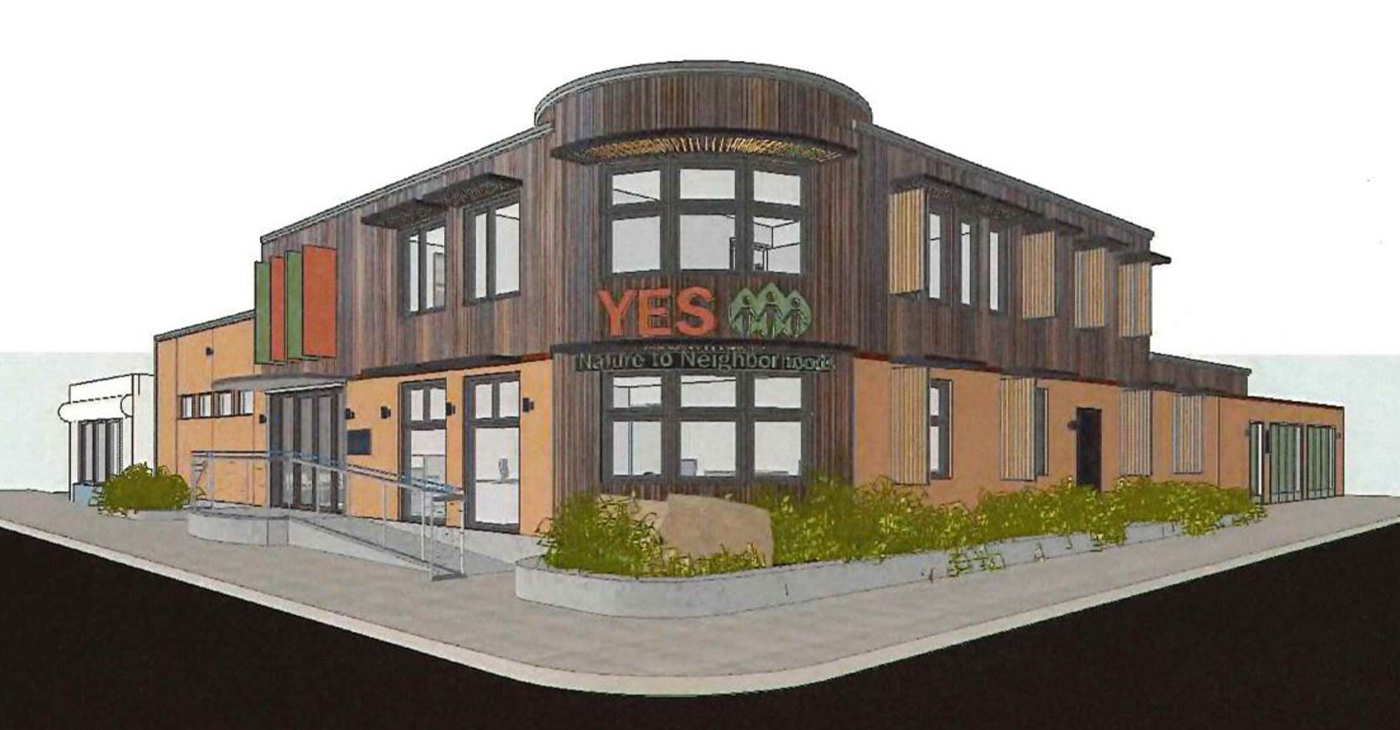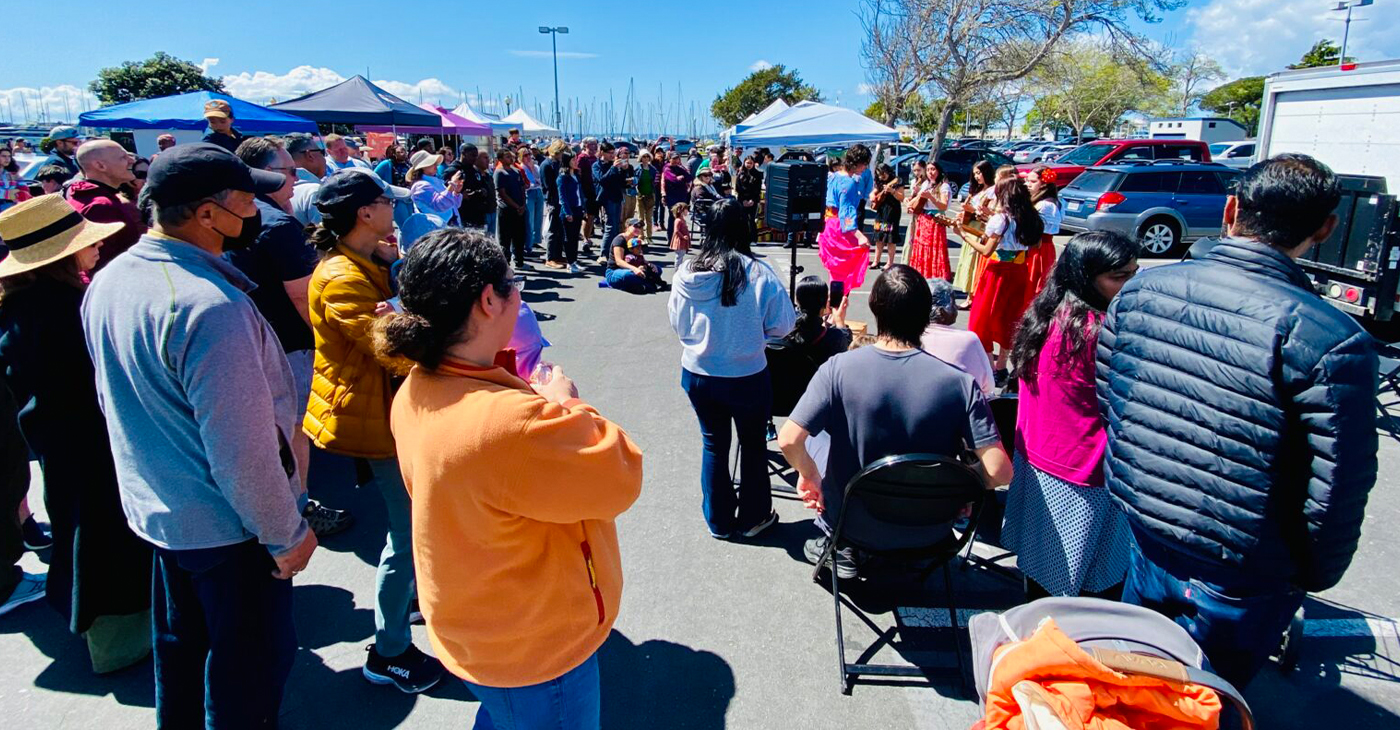Family
Washington Nationals Launch ‘Kids Eat Free’ Program
WASHINGTON INFORMER — The Washington Nationals on Friday launched their new “Kids Eat Free” program, which will offer free meals at every home game to fans ages 12 and under. The complimentary meal packs will include a hot dog, a choice of chips or applesauce, and a 12 oz. bottled water or soda. They will be available at dedicated Kids Eat Free concession stands, located at Section 143 near the PenFed Kids Fun Zone and Section 304 on the Gallery Level.
By WI Web Staff
The Washington Nationals on Friday launched their new “Kids Eat Free” program, which will offer free meals at every home game to fans ages 12 and under.
The complimentary meal packs will include a hot dog, a choice of chips or applesauce, and a 12 oz. bottled water or soda. They will be available at dedicated Kids Eat Free concession stands, located at Section 143 near the PenFed Kids Fun Zone and Section 304 on the Gallery Level.
“We are thrilled to launch this first-of-its-kind program,” said Jake Burns, Nationals Executive Vice President, Business Operations. “The Nationals are committed to providing the best gameday experience, and the Kids Eat Free program will offer tremendous value for our fans. Attending a baseball game is a quintessential American experience. We hope that this initiative will encourage more families to come to Nationals Park and enjoy the national pastime in the nation’s capital.”
To be eligible for program, children must be registered as a Jr. Nationals Kids Club member. Fans can register free of charge through the MLB Ballpark App or by visiting nationals.com/KidsEatFree.
For more information on these programs and more, please visit: https://www.mlb.com/nationals/ballpark/park-experiences
This post originally appeared in The Washington Informer.
Community
Richmond Nonprofit YES Nature to Neighborhoods Plans Major Renovation
Richmond nonprofit YES Nature to Neighborhoods is planning a significant renovation of its headquarters at 3029 Macdonald Ave., around 31st street. The nonprofit serving youth and families in Richmond is requesting a design review permit to demolish the one-story, 2,218-square-foot building and a 95-square-foot shed, and to replace them with a new 4,480-square-foot, two-story building.

The Richmond Standard
Richmond nonprofit YES Nature to Neighborhoods is planning a significant renovation of its headquarters at 3029 Macdonald Ave., around 31st street.
The nonprofit serving youth and families in Richmond is requesting a design review permit to demolish the one-story, 2,218-square-foot building and a 95-square-foot shed, and to replace them with a new 4,480-square-foot, two-story building.
The new building would consist of office and meetings spaces with a 345-square-foot addition to the existing garage on the property, according to city documents. The nonprofit will host youth, adult, and family programming on and off the site.
The nonprofit also proposes to repair sidewalks, replace planters and a fence, add lighting, and provide interior open space, among other improvements.
The city’s Design Review Board was set to review the plans at its meeting this evening on April 10. For more info, go to https://www.ci.richmond.ca.us/DocumentCenter/View/68830/3_PLN23-316-3029-MacDonald-Ave_DRB20240410—Apr-10
Community
Families Flock to New Farmers Market in Marina Bay
The City of Richmond’s first farmers market in Marina Bay kicked off Sunday, April 7 with a large swell of community members coming out to enjoy the occasion. The long-anticipated market set up shop in the parking lot off Regatta Boulevard and Melville Square in Richmond and featured music and dancing, arts and crafts, chess, multiple vendors and some fresh produce from 10 a.m. to 2 p.m.

By Kathy Chouteau
The Richmond Standard
The City of Richmond’s first farmers market in Marina Bay kicked off Sunday, April 7 with a large swell of community members coming out to enjoy the occasion.
The long-anticipated market set up shop in the parking lot off Regatta Boulevard and Melville Square in Richmond and featured music and dancing, arts and crafts, chess, multiple vendors and some fresh produce from 10 a.m. to 2 p.m.
Numerous families turned out for the event, many with their children and family dogs.
The market will continue on Sundays and is operated by the Richmond Certified Farmers Market Association. For more information or to become a vendor, go to https://cirichmondca-newsletter.app.transform.civicplus.com/forms/39634
Community
For Cervical Cancer Month, Medical Community Focused on Education
January was Cervical Cancer Awareness Month. Physicians, advocates and others in the medical community commemorated the month by raising awareness about a form of cancer they say is highly preventable and treatable. Cervical cancer is caused by a virus called the human papillomavirus (HPV) and it develops slowly over time but can be prevented with proper care in girls as young as 13 years old.

By Magaly Muñoz
January was Cervical Cancer Awareness Month.
Physicians, advocates and others in the medical community commemorated the month by raising awareness about a form of cancer they say is highly preventable and treatable.
Cervical cancer is caused by a virus called the human papillomavirus (HPV) and it develops slowly over time but can be prevented with proper care in girls as young as 13 years old.
Sonia Ordonez, an OBGYN and gynecology surgeon at Kaiser Permanente, stated that as soon as people with cervixes reach the maturity reproductive age, they should start taking preventative measures like getting the HPV vaccine. The vaccine involves a series of two-doses for people aged 9 through 14 or three-doses for people 15 through 45 years old.
“I see a lot of young women who can’t remember or may not have gotten [the vaccine] when they were younger, or maybe got one, but we can give them the series of vaccines and restart at any point in time,” Ordonez said.
She said that cervical cancer is not the only cancer caused by HPV. Strains of the virus can also lead to throat, anal and penile cancers.
Screening is also an effective way to check for cervical cancer and should be done every three years after someone turns 21, doctors recommend. It is best to start as early as possible to catch occurrences early.
Ordonez said that this cancer is also more likely found in people of color and has led to more deaths overall.
A Mayo Clinic article published last month stated that Black women are more likely to be diagnosed and die of cervical cancer, compared to White women in the U.S.
2,000 Black women are diagnosed every year with cervical cancer and 40% die as a result.
“This disparity is not due to genetic differences among White, Black or Hispanic women, but rather related to systemic racism, access to healthcare and socioeconomic factors,” Dr. Olivia Cardenas-Trowers, a Mayo Clinic urogynecologist, said in the article.
Ordonez stated that immigrant women are also highly susceptible to the cancer, as many Latin American countries may not have accessibility to screenings or lack of insurance makes it harder for them to get tested.
Hispanic women are 40% more likely to be diagnosed with cervical cancer, and 30% more likely to die from it, as compared to non-Hispanic White women, according to the Office of Minority Health.
Family medicine physician, Joy Anyanwu, stated that the pandemic contributed to hesitancy about getting cervical cancer screenings among some women. Other factors are people’s aversion to vaccines, parents not wanting to believe that their children are or will become sexually active, and doubt about the overall effectiveness of the vaccine.
“The vaccine is very safe — over 97% effective in preventing cervical cancer,” Anyanwu said. “Even if you aren’t having sex, the earlier you start would actually help.”
Anyanwu said she understands that parents might not want to ask questions about their children’s reproductive health, but it’s a mindset that can be a barrier to having important conversation about prevention or care.
To keep families their families and communties healthy, the doctor emphasized that people should prioritize keeping up with their vaccine series and going to screenings every year.
-

 Activism4 weeks ago
Activism4 weeks agoOakland Post: Week of March 27 – April 2, 2024
-

 #NNPA BlackPress4 weeks ago
#NNPA BlackPress4 weeks agoCOMMENTARY: D.C. Crime Bill Fails to Address Root Causes of Violence and Incarceration
-

 #NNPA BlackPress4 weeks ago
#NNPA BlackPress4 weeks agoFrom Raids to Revelations: The Dark Turn in Sean ‘Diddy’ Combs’ Saga
-

 #NNPA BlackPress4 weeks ago
#NNPA BlackPress4 weeks agoCOMMENTARY: Lady Day and The Lights!
-

 #NNPA BlackPress4 weeks ago
#NNPA BlackPress4 weeks agoMayor, City Council President React to May 31 Closing of Birmingham-Southern College
-

 #NNPA BlackPress4 weeks ago
#NNPA BlackPress4 weeks agoBaltimore Key Bridge Catastrophe: A City’s Heartbreak and a Nation’s Alarm
-

 #NNPA BlackPress4 weeks ago
#NNPA BlackPress4 weeks agoBaltimore’s Key Bridge Struck by Ship, Collapses into Water
-

 #NNPA BlackPress4 weeks ago
#NNPA BlackPress4 weeks agoBeloved Actor and Activist Louis Cameron Gossett Jr. Dies at 87











































1 Comment